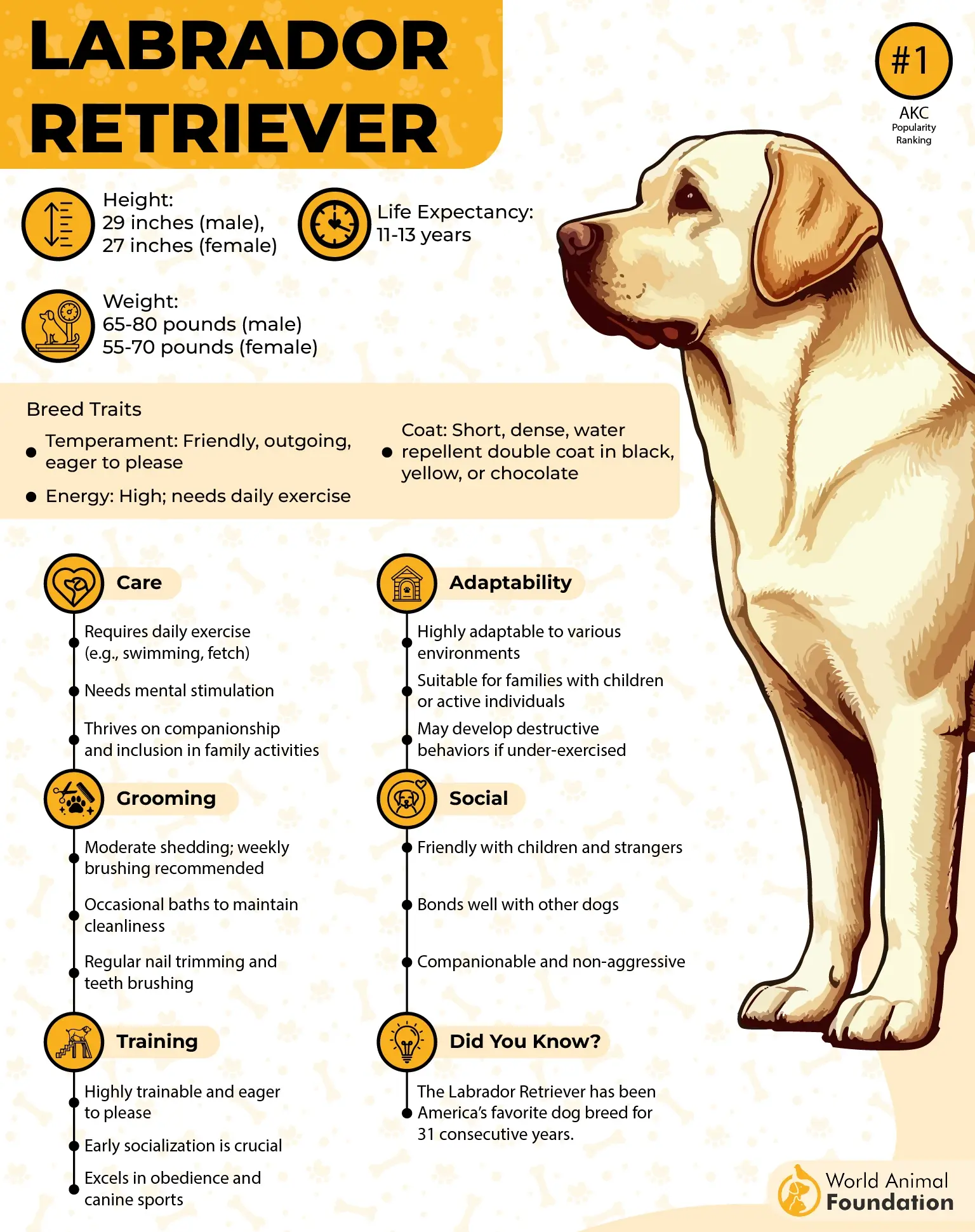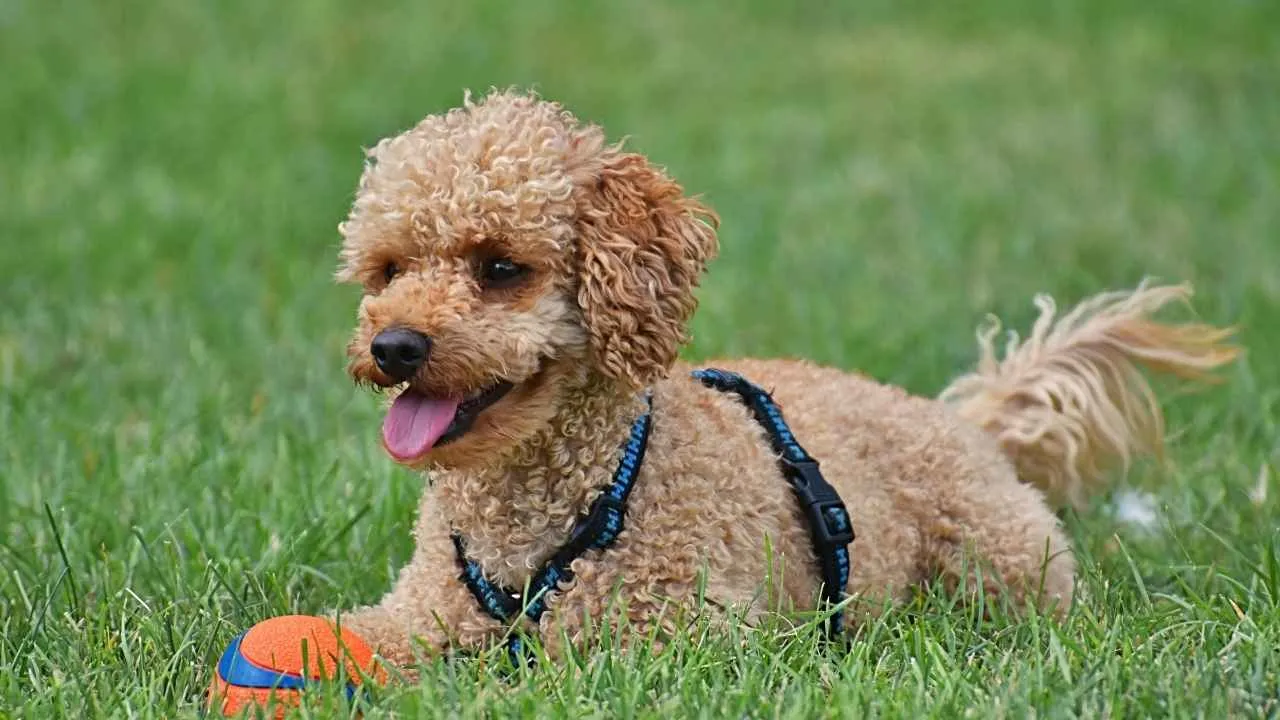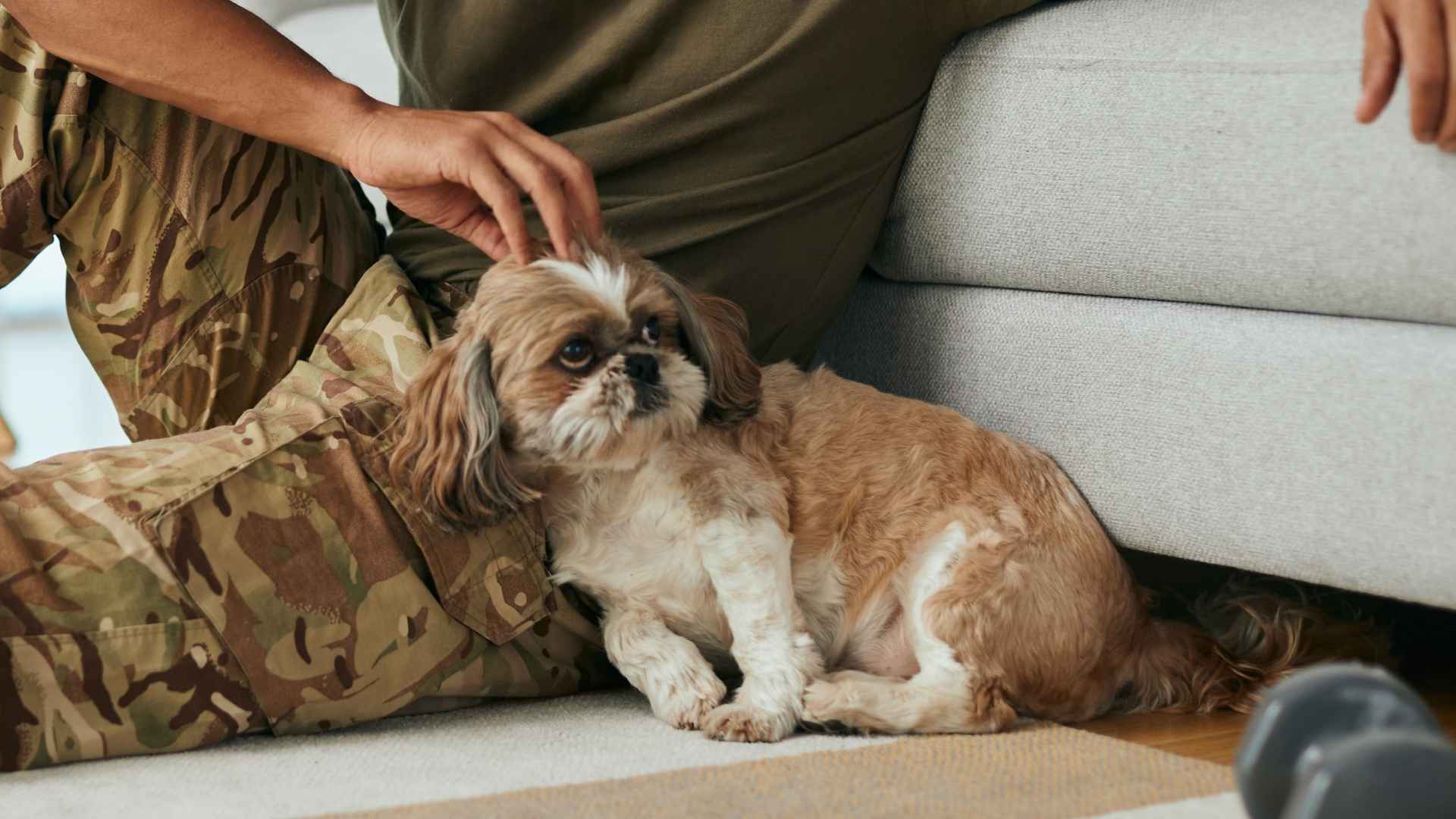Recent studies show that PTSD diagnoses are increasing, especially among college students. According to the report, 12 million adults in the U.S. lived with PTSD in the last year.
That’s not a rare diagnosis—it’s a deeply human response to trauma. And while therapy and medication help, something extraordinary happens when a dog enters the picture.
These dogs are trained companions who detect anxiety before it surfaces, interrupt flashbacks, and offer grounded comfort in overwhelming moments. People often think of dogs as loyal friends, but for those with PTSD, they’re daily lifelines.
Breeds with high emotional intelligence, calm energy, and a strong work drive are changing lives every day. These aren’t show dogs or trick dogs. They’re task dogs, with a job that can’t be measured in commands.
In this article, we’ll explore the breeds best suited for PTSD therapy—dogs whose steady presence, gentle nature, and silent strength offer a second chance at peace.
Dog Breeds Used For PTSD Therapy
1. Golden Retriever

Golden Retrievers are known for their even-tempered personality, which brings a comforting sense of predictability. Their patience helps individuals feel safe during high-stress moments. This steady nature is key for anyone managing post-traumatic stress disorder in everyday settings.
Strong Human-Bonding Instincts
Their tendency to form deep connections with people allows them to respond intuitively to emotional cues. Many handlers note their ability to sit close or nudge gently during rising anxiety. These interactions offer grounding support without the need for commands.

Trainability and Task Response
Goldens are quick learners and excel in environments where consistency is vital, as per PetMD. They’re often trained to detect signs of panic and perform specific calming tasks. Their ability to follow routines makes them dependable therapy companions across various settings.
Known for Their Soft Mouths
A famously soft mouth allows them to hold delicate items without breaking them, even raw eggs. This level of control reflects their gentle approach to everything, a trait that also contributes to their success as emotional support animals.
2. German Shepherd

German Shepherds are hardwired to listen, observe, and act quickly without second-guessing. This makes them ideal for learning precise behaviors that reduce panic episodes. Their obedience is especially valued when used as psychiatric service dogs for trauma-related conditions.
Emotionally Perceptive Under Pressure
Their sensitivity to tone, movement, and facial expression allows them to intervene before distress escalates. This kind of early-response behavior supports individuals with complex triggers. For many, this gives the breed a reliable role in ongoing mental health support.

Consistency in Routine-Based Support
They’re trained to wake handlers from night terrors, create space in crowds, or initiate physical contact on cue. German Shepherds excel in structured environments where consistency builds trust. This adaptability reinforces their reliability as ptsd service dogs in daily life.
Top Breed in U.S. Military and Police Units
Due to their working precision and loyalty, German Shepherds are the only dog breed consistently ranked among the top choices in both police and military roles. That same discipline makes them dependable companions in therapy-based roles, too.
3. Labrador Retriever

Labradors are emotionally balanced and known for their unwavering patience in stressful environments. Their low-reactivity temperament creates a secure presence for individuals managing trauma. This predictable behavior builds long-term comfort in therapy settings.
Highly Responsive to Cues
Labradors can detect subtle changes in body language, breathing, or movement. They respond instinctively by positioning themselves close or making soft contact. These responses are key in helping someone regain control during a PTSD episode.

Adaptable Across Tasks and Routines
This breed is capable of performing a wide range of assistance duties without becoming overwhelmed. Their ability to stay calm and focused makes them one of the best service dogs for psychological support roles. Many are also trained as full-service animals in medical contexts.
Famous for Their Love of Water
Labradors have webbed feet and a water-resistant coat, which naturally make them strong swimmers, as claimed by the AKC. While unrelated to therapy directly, this trait highlights their physical versatility — a quality appreciated by trainers of emotional support dogs.
4. Poodle

Poodles are among the few service dog breeds with a low-shedding, hypoallergenic coat. This makes them ideal for therapy work in clinical spaces or homes with sensitivities. The coat also allows handlers with allergies to spend extended time with them comfortably.
Highly Responsive to Emotional Changes
Poodles are known for their remarkable emotional awareness, often reacting before verbal cues are given. They can pick up on subtle shifts in mood or posture. This ability is especially helpful for individuals managing traumatic stress disorder ptsd symptoms.
Cognitive Skills and Structured Task Recall
Ranked as one of the most intelligent breeds, Poodles adapt quickly to task-oriented routines. Their focus during service dog training helps them consistently perform targeted interventions. Many are taught to interrupt anxious behaviors with gentle physical contact.
Famous for Learning Complex Routines
Poodles have been known for memorizing dozens of commands with minimal repetition. This high-level learning capacity keeps them reliable in unpredictable therapy environments. Their success across various service dog breeds comes from this consistent mental sharpness.
5. Pomeranian
Pomeranians are naturally alert and quick to pick up on shifts in human tone or body language. This responsiveness allows them to mirror and adapt to emotional cues in therapy settings. Their presence can offer distraction, grounding, or even a sense of shared energy.
Confidence in Small Spaces
Despite their size, Pomeranians move confidently through both quiet and busy environments. Their adaptability makes them suitable for people who require a therapy companion in shared housing or apartments. This helps in managing overstimulation or sensory triggers during episodes.
Structured Routines and Commands
They respond well to consistent cues and thrive under repetitive task-based training. Their intelligence and enthusiasm make them capable of performing basic service dog work like alerting or tactile stimulation. Proper guidance from a licensed mental health professional is essential for this transition.
A Coat That Once Inspired Royal Fashion
Queen Victoria famously owned a Pomeranian, leading to their popularity in Europe during the 19th century. Though small, they remain a confident and affectionate breed, often seeking eye contact and interaction that benefits therapeutic bonding.
6. Border Collie
Border Collies are alert to the smallest changes in their environment, often reacting faster than most other breeds. This hyper-sensitivity allows them to detect early behavioral shifts in their handler. Such awareness becomes valuable during panic episodes or sudden dissociation.
Structured Thinking and High Focus
They thrive on order and show impressive focus even during distractions, which supports consistency in service dog work. Their ability to stay on task during therapy sessions is a key reason they’re selected for advanced emotional support roles. Reliable attention helps reduce unpredictability for handlers.
Responsiveness Without Overreaction
Their ability to respond quickly without acting impulsively keeps the environment calm and manageable. They’re skilled at picking up on voice tones and facial expressions, offering presence without becoming overwhelming. These responses are especially beneficial when supervised by a licensed mental health professional.
Known to Understand Over 1,000 Words
A Border Collie named Chaser became famous for recognizing over a thousand words, a record among dogs, as the AKC highlighted. This breed’s intelligence pairs well with patient training and makes them an affectionate canine that adapts to nuanced emotional needs.
7. Cavalier King Charles Spaniel
Cavaliers are highly responsive to human moods, often curling up beside people when stress levels rise. Their affectionate nature isn’t just sweet — it helps ground individuals during sudden shifts in emotion. This kind of presence is especially useful during panic attacks.
Ideal Size and Low-Energy Indoors
Their small frame allows them to stay close in all kinds of settings, whether that’s a couch or a public space. Unlike many small dogs, Cavaliers are known for their calm indoor behavior. Their quiet companionship is well-suited for therapeutic environments.
Predictable Behavior and Easy Handling
With a consistent temperament and a cooperative attitude, they’re easy to manage during structured routines. They respond well to gentle commands and rarely show resistance or erratic behavior. These traits make them a natural fit as an assistance animal.
Known for Constant Tail Wagging
Cavaliers are famously known for their wagging tails, even when simply making eye contact. This expression of joy reinforces positive moments and provides reassurance. It’s one reason they’re frequently chosen as emotional companions by licensed programs.
Conclusion
PTSD therapy dogs are more than companions—they help with everyday tasks and emotional balance. While certain breeds like Golden Retrievers or Poodles are among the most service dogs used, many others—including mixed breeds—can also succeed with the right training.
The key is choosing a dog that’s easy to train, calm in unpredictable environments, and able to perform tasks that support emotional recovery. These dogs may live with other animals, support family members, or serve as guide dogs for people with psychiatric disorders.
Whether you prefer large dogs or a smaller, quiet companion, finding a dog that matches your lifestyle and needs makes all the difference. Their loyalty, focus, and unconditional love can become a turning point in someone’s healing journey.


